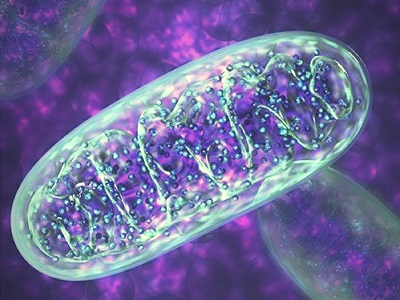
11 Oct Caring for Your Mitochondria
Every single process in your body takes place because of energy – whether it’s digesting your food, detoxing your system, or just stretching your muscles. The bodily need for energy cannot be overstated. We all know that we derive energy from the foods we eat, as we commonly measure energy in terms of calories. But just how does that food get converted into a usable form of energy that each and every cell can use?
Mitochondria are the energy-generators of the body.
The answer lies in a small component of each cell called mitochondria. There are hundreds to thousands of mitochondria in every cell of the body, and they are constantly working to pump out molecules charged with energy to be used up by all the tissues.
Why do you need to care about your mitochondria?
Over the years, each of us is exposed to environmental toxins such as heavy metals (lead, mercury, etc), pesticides & insecticides, and also may have vitamin and mineral micro-deficiencies. All of these will slow down or stop the functioning of the mitochondria, resulting in a lower level of energy being produced despite a similar intake of calories. A person may be able to compensate earlier in life. But as they age, toxin buildup or chronic nutrient deficiencies significantly impact the mitochondria so that the drop in energy available impacts a person’s day to day functioning, or their ability for the body to repair its own tissues and cells. In fact, all diseases are worsened or perpetuated by a decline in mitochondrial function.
How do I help my mitochondria function better?
The good news is that there are several ways to ensure that your mitochondria are as healthy as they can be. First is to give yourself a diet rich in a diverse range of vegetables, including several greens, several colored veggies, and several veggies containing sulfur (onions, garlic, shallots, Brassica family, mushrooms) daily. You should specifically watch for any micro-deficiencies in Iron, Magnesium, and the B Vitamins. CoEnzymeQ10 is used by the mitochondria in making energy, so any medications that decrease CoEQ10 activity (like cholesterol-lowering medication) can take a toll on the function of the mitochondria. This is particularly dangerous for those people who experience muscle and/or joint pain when taking these medications, as this is a sign that the mitochondria are significantly impaired. CoEQ10 can be supplemented, or better yet, you can change your health and work to come off of these medications. Some people may need added assistance in removing the buildup of toxic heavy metals in their bodies.
You can improve your energy levels by healing your mitochondria.
Perhaps the two biggest things negatively impacting people’s mitochondria are 1) sugar and simple carbohydrates they eat, and 2) lack of regular exercise. Mitochondria are very responsive to the condition of the body and they become sluggish and even shut down when there is consumption of sugar and/or simple carbohydrates. Even though it seems that sugar gives you a quick energy boost, the end result is a crash that is worse and a slowing down of your mitochondria altogether. Exercise is the best way to encourage your body not just to keep your mitochondria healthy, but to make more mitochondria too. This is why regular exercise actually gives you energy and helps keep all the processes of the body running better. Regular aerobic exercise (especially interval training) can increase your mitochondria by 50%!
So take care of your mitochondria because your life depends on it!
Madeleine M Castellanos, MD is a practitioner of functional medicine – working with people to identify the root cause of their symptoms and helping them to reverse the process of illness through diet, nutrition, and lifestyle optimization. She also integrates the physical with the mental and spiritual aspect of health and teaches people how to use these together for their best quality of life. In her private practice, she does body composition analysis, can recommend nutritional and toxic element testing, and hormone evaluation. For more information, or to book an appointment, please call 917-454-8444.
Follow Dr Castellanos on Twitter @DrCastellanos
Follow Dr Castellanos on Facebook at Madeleine M Castellanos, MD




No Comments